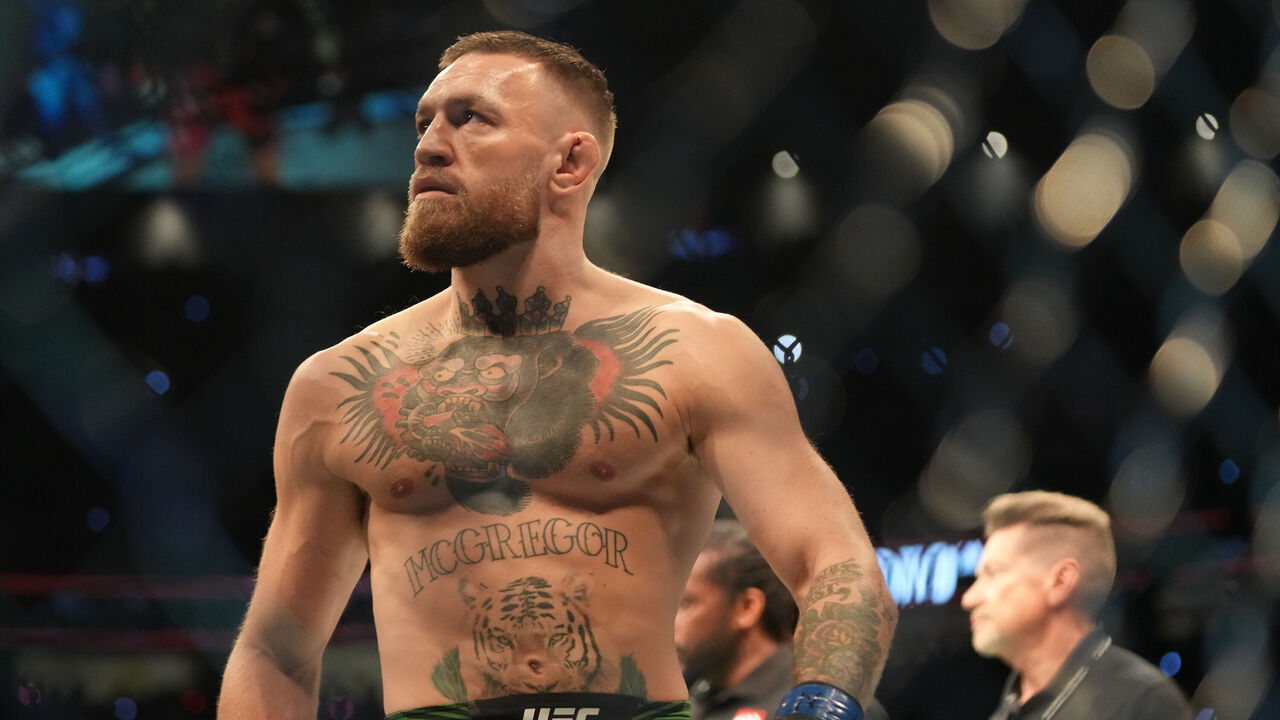6 questions hanging over UFC's move to Paramount
A new era in the UFC is upon us.
The promotion announced Monday its U.S. distribution is shifting from ESPN to Paramount in 2026 after signing a new seven-year, $7.7-billion media rights deal.
The deal will effectively end the UFC's long-running pay-per-view model. Paramount will distribute 13 numbered events and 30 Fight Nights per year on its streaming platform, Paramount+, with some marquee events also simulcast on CBS.
What does all of this mean for the UFC, its fighters, and its fans? Here are some of the questions lingering after this blockbuster announcement.
1. Will card quality be affected?
It's no secret that the UFC's card quality has dropped off over the last few years. Fight Night events that used to be full of ranked contenders now often feature a rotating cast of Dana White's Contender Series alums with one or maybe two big fights at the end. That's especially true when the promotion is at the UFC Apex, where it has a minimal number of tickets to sell (though that's apparently changing).
The one consistent bright spot throughout the ESPN era has been pay-per-view events. Some cards have been better than others, but generally speaking, the UFC has kept a high bar for its premium product - because it needs to sell pay-per-views and keep ESPN happy. Just look at this weekend's UFC 319 show in Chicago: a title fight in the main event, a total of 11 ranked fighters, and several notable veterans and prospects on the undercard. Not bad at all.
Now that numbered events will be included in a flat monthly fee on Paramount+, there's reason to believe the UFC will be less motivated to put out an attractive product. Assuming the $1.1 billion per year from Paramount is guaranteed, what will incentivize the UFC to create the biggest and best fights as often as possible? There's a real chance that some of the numbered events and Fight Nights will be indistinguishable in a world where the UFC has nothing to sell.
2. What happens to fighters who collected PPV points?

UFC fighters realize ultimate financial freedom when they become champions and start receiving a cut of pay-per-view revenue, also known as pay-per-view points. It's normally part of a fighter's contract. Conor McGregor's deal apparently ties him to pay-per-view points even when he isn't a champion. So what happens now? Will the UFC offer inflated purses to offset the change in models, will fighters earn bonus money based on viewership numbers, or is something totally different in the works?
UFC heavyweight champion Tom Aspinall is seeking answers like the rest of us.
"Is it amazing news for guys who are getting pay-per-view points like yours truly?" Aspinall said of the UFC's new deal during an appearance Monday on "The Ariel Helwani Show." "How does that work? I have no idea."
3. Is pay-per-view really dead?
TKO Group president Mark Shapiro started Monday by calling pay-per-view "a thing of the past." But by the end of the day, UFC CEO Dana White was saying the promotion could still hold a "one-off" pay-per-view event and "pay-per-view is not dead."
So which is it? Perhaps White's tune will change in five months once the ESPN deal is officially over and there are no pay-per-view events left to sell. But the UFC CEO sure does sound like a big fan of the pay-per-view model who would love to go back to it at some point. Or he's just stubborn and trying to get used to the new normal like everyone else.
4. How many numbered events land on CBS?
Shapiro told CNBC that "likely all" the numbered cards will be simulcast on CBS, the linear TV network owned by the same parent company as Paramount. But White later said on CBS Sports HQ that he expects only four tentpole events per year to be on the network.
Though it might be a while before we get a firm answer, White's estimate makes the most sense. The UFC will want to put its biggest events on CBS to maximize viewership, but Paramount will want the vast majority of UFC events to be on its streaming service to help boost subscriptions. One CBS card per quarter sounds about right.
5. How much will Paramount+ prices go up?
The idea that you can pay $7.99 a month for Paramount+ (or $12.99 a month for the ad-free version) sounds too good to be true after years of forking out arms and legs to watch pay-per-view events. Paramount+ should see a massive increase in subscribers when the UFC transitions in 2026, but it'll be a matter of time before prices also spike. Paramount just committed to spending $7.7 billion, more than its entire parent company is worth in market capitalization, and the network needs to come up with that money somehow.
6. Where will the UFC's other programming land?

Dana White's Contender Series, "The Ultimate Fighter," and Road to the UFC are not included in the Paramount package, which means the UFC is actively shopping those distribution rights. Once these series are no longer on the same platform as the UFC itself (Contender Series and "TUF" are currently on ESPN), it will be fascinating to see whether that has an impact on viewership and overall buzz. Those series may need to fight for favorable treatment at a different outlet that needs programming but is less invested in the success of the UFC and, more broadly, mixed martial arts.
HEADLINES
- Prochazka, Ulberg to fight for belt at UFC 327 after Pereira vacates
- Brady-Buckley, Moicano-Duncan set for April UFC main events
- Strickland stuns Hernandez with TKO in UFC Houston main event
- Watch: Medic stiffens Neal with vicious KO, calls out Edwards
- Watch: Costa TKOs Ige with spinning back kick at UFC Houston